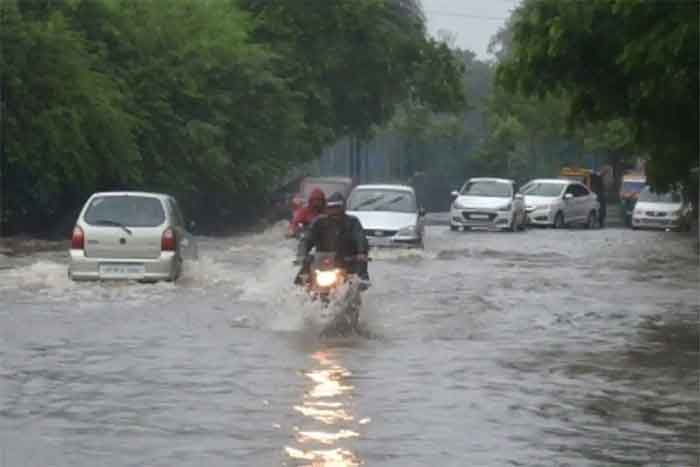In March 2020, just before the outbreak of the Covid-19 pandemic, all that 16-year-old Zubeida Ali, a student in Lalwadi village of Rajasthan’s Tonk district wanted most was to be the first in her family to pass the 10th class exam and become a teacher.
Little did she know that her life goal would have to be put on pause. A month later, during the first lockdown, she had to put her school bag aside and help her mother with household chores. A year later her parents announced her marriage against her wishes.
Zubeida is not alone. Hundreds of girls in the Tonk district had to stop their education, with their financial conditions forcing them to drop out of school. While some resumed their studies, many never went back.
 “I never thought my life would change after March 2020. During the lockdown, my father, the only breadwinner, lost his daily wage job, forcing us to cut down our daily living standards. I started helping my mother with her work. She is a house help and works close-by. I missed going to school and meeting my friends. So did my two younger sisters”, Zubeida shares her ordeal with Covid Response Watch.
“I never thought my life would change after March 2020. During the lockdown, my father, the only breadwinner, lost his daily wage job, forcing us to cut down our daily living standards. I started helping my mother with her work. She is a house help and works close-by. I missed going to school and meeting my friends. So did my two younger sisters”, Zubeida shares her ordeal with Covid Response Watch.
“While my two siblings went to school again in 2021 my parents asked me to work and help them sustain the family. I joined a nearby stitching centre after that”, she added.
“Six months later they started putting pressure and married me off to a boy from a nearby village Jugalpura. I resisted a lot but my parents explained that my marriage can help them deal with the financial crunch. I have been married for the last 5 months now. And there hasn’t been a single day when I don’t miss school”, Zubeida shares.
Like Zubeida, many girls were married off during the Covid-19 period by their parents owing to the economic crunch.
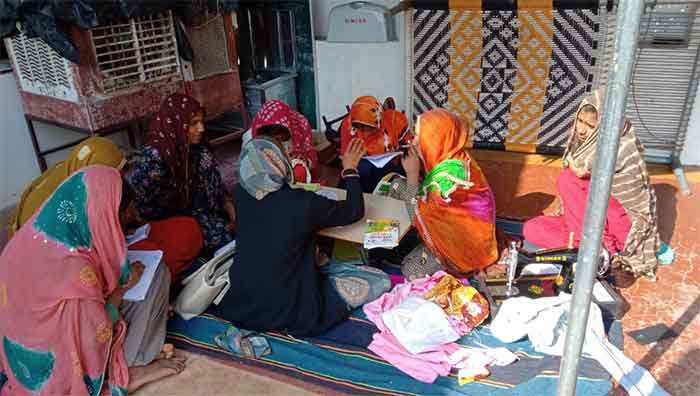
“Soon after the Covid-19, we focused on Schedule Tribe and Nomadic Communities in Tonk district. We started by distributing the food kits and eventually as the situation eased up, our focus was to send children back to school”, said Giriraj Prasad Sharma, a social worker of Bhavi Nirman Society told Covid Response Watch.
The organisation is working with around 400-500 girls and has been successful in sending several students back to government schools or enrolling them into open school systems.
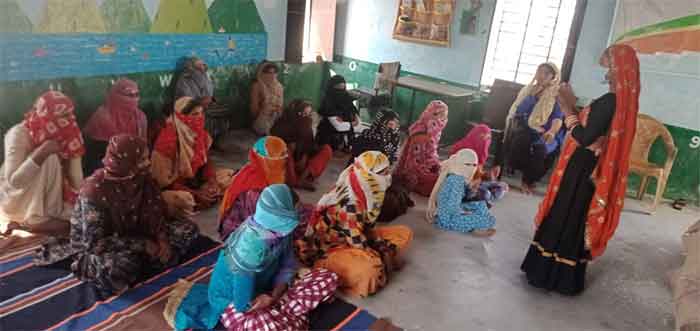
“Besides our door-to-door drive for vaccination, we have been trying hard to send girls back to school. It took us several rounds of discussions to convince their parents and family members. While our organisation is bearing the cost of their education, we are also training them in soft skills”, Rama Sharma, a social worker and co-founder of Bhavi Nirman Society said.
The society has around 40-50 volunteers working in the villages of Uniara, Niwai in Tonk district and has set up training centres at Lalwadi, Jugalpura, Allahpura Soop Banetha and Nasiah.
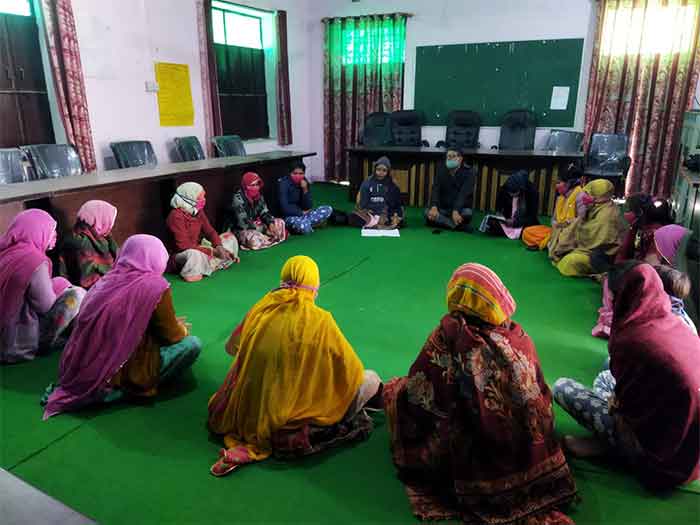
“The communities who are suffering the most are ST communities (Gadariya, Lohar and Sasi), Muslim and nomadic communities. Most of them are banjaras (nomads) who have lost livelihood in the pandemic and hardly have any savings. Most of the families think stopping education and getting their children married off will help them save some money. Hence we had to convince them and share responsibilities as most of the girls wanted to go back to school” added Rama.
“Eating a meal once a day was very difficult for us. In such a situation, how can we even think of educating our girls? All we could think was to marry them off, to ease some of the burden”, Subi Banjara, a mother of five who earns from cattle rearing said.
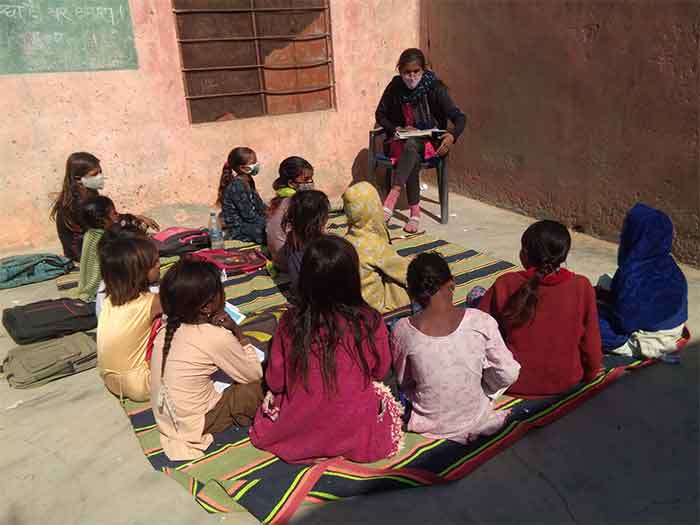
The back-to-school movement led by Rama and her volunteers and field coordinators has resulted in a record number of enrollment in open schools.
“After taking a break of two years, I never thought I would ever go back to school. I lost my father during the pandemic. My mother was the only breadwinner in the house and I was helping her, being the eldest. But two months ago, there was a knock at my door which changed my life. Now I have again got enrolled in the school and I shall resume my studies”, Sonu Bairwa, a 19-year-old girl from Soop village in Uniara said.
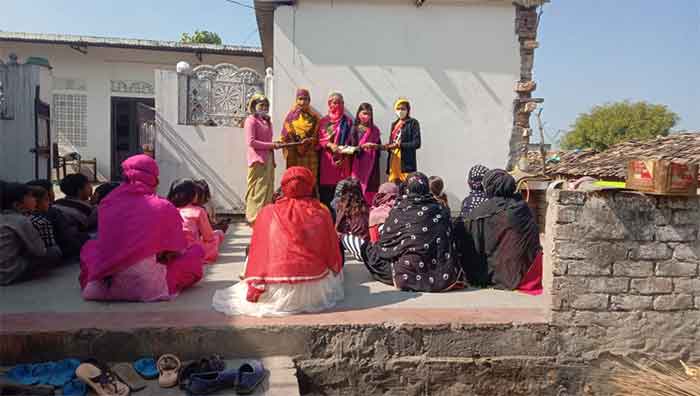
“In our village girls and boys were forced to discontinue their education during the pandemic. While boys went back to school, girls couldn’t. This movement started by the volunteers associated with social work has filled the village with hope. Most of the girls have been enrolled into open schools and they are taught at the centres here”, Kishkanda Devi, the sarpanch of Soop village in Uniara said.
“As compared to last year we will have three times more admissions in the open schools in 2022. Parents have been convinced by the volunteers associated with NGOs. The existing teachers in the government schools also initially went door-to-door to convince the parents’ ‘, said Dhiraj Singh, in charge of open school education in Niwai village of Tonk district.
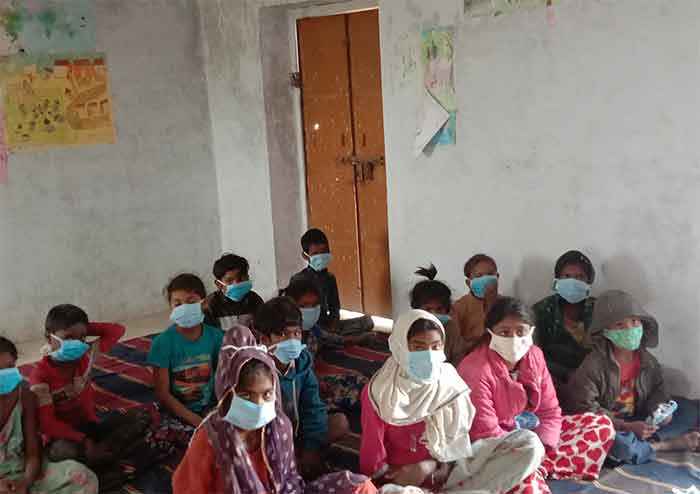
“In most of the government schools in Tonk district, it was quite evident that there is a huge number of students dropping out. However, after focusing on the target communities, one could clearly feel that girls are coming back to school and are once again ready to learn”, Trilok Jain a government teacher at Tonk said.
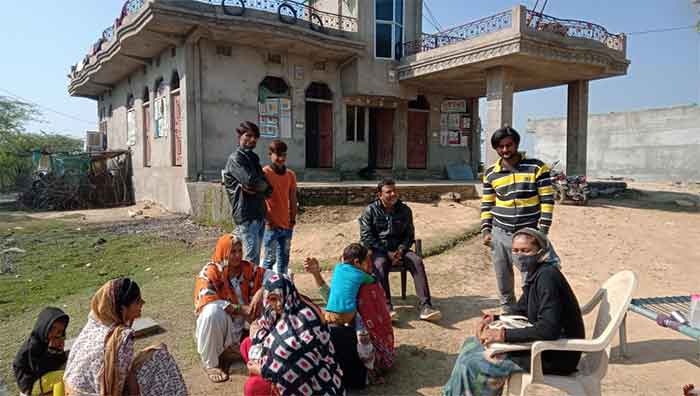
According to a survey released in November 2020 as many as 64 per cent of children in rural India fear they might have to drop out of school if they are not provided additional support to cope with the learning gaps in their curriculum. The survey was conducted by the Delhi-based NGO ChildFund India across 20 backward districts in 10 states — Bihar, Chhattisgarh, Delhi, Jharkhand, Madhya Pradesh, Maharashtra, Odisha, Rajasthan, Uttar Pradesh and West Bengal —among 1,725 children, 1,605 parents, and 127 teachers.
The assessment report, titled, ‘Perception, Fears and Readiness for Reopening of Schools’, found that 84 per cent of the parents and 83 per cent of the children want schools to reopen.
Tabeenah Anjum is a journalist based in Rajasthan, reporting on politics, gender, human rights, and issues impacting marginalized communities. She tweets @tabeenahanjum

